Jews are the resilient people. Judaism is a religion of resilience. We have been attacked, enslaved, and exiled. And yet as a people we persist. As a religion we have continued longer than any other and even thrived.
Why? Because we understand that resilience is something more than just survival. It is a combination of factors that when taken together empower a person or a people to both confront and transcend adversity. We have learned not merely to bounce back but to move forward.
Notice the trajectory of the early Hebrews. They went from slavery to freedom. But freedom did not just mean running blithely through the Sinai. They marched to Sinai where they accepted responsibility and took on the yoke of Torah. The resilience of the Jewish people has followed a path from enslavement to responsibility. With Torah, we coalesced as a people. With responsibility, we undertook the duty to transform the world.
Imagine for a moment that you have lost your freedom. Your liberty is gone. Maybe it is house arrest, or you are a prisoner or perhaps in a concentration camp. You endure extreme hardship. Could you bounce back from such a major disruption in your life? If you hit bottom, where bottom is a prison cell, are you able to push off of the floor and soar even higher? As J.K. Rowling, author of the Harry Potter books who was living our of her car for a while, wrote: “rock bottom became the solid foundation upon which I rebuilt my life.”
What happens to a person who has been deprived of their liberty or even their identity, and survives to ultimately thrive? Let’s explore a few such biographies.
Example #1. Victor Frankl was born in Vienna, Austria in 1905. Frankl earned a medical degree from the University of Vienna in 1930 and was put in charge of a Vienna hospital ward for the treatment of females who had attempted suicide. When Germany seized control of Austria eight years later, the Nazis made Frankl head of the Rothschild Hospital.
Nine months later, Frankl, his wife and his parents were deported to Theresienstadt , and then to Auschwitz, 9 months more in Kaufering, a slave labor camp, and finally Turkheim. Frankl’s wife, his parents, and brother died in the concentration camps.
After the war and until his death in 1997, Frankl was highly decorated with honorary degrees and medals. He lectured around the world and his 39 books were published in 40 languages.
Frankl learned that finding meaning and purpose in life is the foremost goal of those who thrive, not merely survive. In his book Man’s Search for Meaning Frankl wrote: “If there is meaning in life at all, then there must be meaning in suffering.” After enduring the suffering in these camps, Frankl concluded that even in the most absurd, painful, and dehumanized situation, life has potential meaning and that, therefore, even suffering is meaningful. This conclusion served as a basis for his approach to psychology, an offshoot of Freudian analysis, called logotherapy. He said, “What is to give light must endure burning.” “What is to give light must endure burning.”
What was it that gave meaning to his life, even to his suffering? Frankl wrote about how during his slave labor, marching to work in the frozen pre-dawn hour, his thoughts turned to his wife and the love he felt for her. In that moment he understood that “love is the ultimate and highest goal to which man can aspire.” He wrote “the salvation of man is through love and in love. “ Frankl continue: I understand how a man who has nothing left in this world may still know bliss, be it only for a brief moment, in contemplation of his beloved.” That insight during the darkest moments, gave Frankl the power to be resilient. A loving relationship gave him a purpose that transcended merely surviving.
Frankl’s story is certainly one of being deprived of everything… down to having a number replace your name. But his understanding that meaning can be found even in suffering and it gave him the strength of resilience and then propelled him to undertake the life long project of bringing hope to many who have been in despair. It is that next step that fascinates me- that the completion of resilience is not surviving but thriving in a way that takes on a yoke of responsibility to improve the world.
Frankl, who had been denied all aspects of freedom, understood that it is not sufficient to survive and it is not even enough to thrive. In fact, Frankl was an advocate for making the world a better place because he understood that freedom by itself is insufficient. Once free, it was his responsibility to share his knowledge and take on a leadership role. In that regard, Viktor Frankl once recommended that the Statue of Liberty on the East Coast of the United States be complemented by a Statue of Responsibility on the West Coast:
“Freedom, however, is not the last word. Freedom is only part of the story and half of the truth. Freedom is but the negative aspect of the whole phenomenon whose positive aspect is responsibleness. In fact, freedom is in danger of degenerating into mere arbitrariness unless it is lived in terms of responsibleness. That is why I recommend that the Statue of Liberty on the East Coast be supplemented by a Statue of Responsibility on the West Coast.”
And so the corollary to resilience is responsibility, as resilience alone is insufficient.
Example # 2. The leadership lesson from Nelson Mandela’s life is also one of resilience. Throughout decades of personal oppression and a situation that just about everyone would consider hopeless, Mandela never lost hope. He was steadfast in his belief that change would come – as long as he stayed strong. Mandela’s struggle against South Africa’s apartheid took him from the isolation of Robbins Island prison to the role of President. He never gave up on his resilience and rose to embrace his responsibility to bring meaning to his captivity.
At his trial in 1963, Mandela and his codefendants made a rather remarkable decision. Rather than pull out all the legal stops in an effort to beat the charges of treason against them, they decided to make a global statement, ostensibly admitting to treason and saying they did so because the apartheid law was immoral. At that trial Mandela told the world:
“I have cherished the ideal of a democratic and free society in which all persons will live together in harmony and with equal opportunities. It is an ideal for which I hope to live for and to see realized. But my lord, if it needs be, it is an ideal for which I am prepared to die.”
He spent 27 years in prison. During that long imprisonment, he never wavered from his dream of racial equality. There was purpose in his imprisonment and there was meaning in his suffering. He had a goal, a vision, one that benefitted the world and one for which he was willing to die.
While very few human beings could ever approach Mandela’s level of commitment, resilience is a critical trait for leaders. Leaders must have the ability to remain committed to a vision even when logic suggests the vision will never be more than a dream.
Example #3. That brings me to another survivor who took on the yoke of responsibility, Senator John McCain. McCain came from a military family; both his father and grandfather were Admirals. Like Mandella, he too was a prisoner. A Navy pilot, McCain was shot down over Vietnam – after ejecting from his plane with his right leg and right arm broken, he parachuted into a lake, where he sunk down about 20 feet. He pushed off bottom and rose to the surface able to take a breath before sinking again. He was wearing 50 pounds of equipment. Finally he was able to inflate a life preserver and float. After being pulled from the water, unable to stand, he was physically attacked and then delivered to the North Vietnamese.
McCain was a prisoner of war for five and a half years until his release on March 14, 1973. The first two years were spent in solitary confinement. While he was offered early release because of his father’s notoriety as an Admiral, McCain refused. He based his decision to remain in prison on the Code of Conduct, which says “you will not accept parole or amnesty,” and “you will not accept special favors.” At his lowest point, suicidal, he agreed to write a confession of crimes. That was the episode of his experience about which he has most agonized. His wartime injuries left permanent scars and he remains unable to raise his arms above his head.
McCain returned to the United States bent but not broken. He was first elected to Congress from Arizona in 1982, and then to the United States Senate in 1986, where he has served for 30 years. He was a candidate for President in 2008.
McCain knows about resiliency. According to McCain, it is impossible to demonstrate resilience unless you have gone through difficult times. McCain wrote about four things discovered during his journey of becoming a resilient leader:
1. With every struggle comes a tremendous opportunity. These are the times where you can choose to embrace the gift of adversity and use it to strengthen your abilities . . . This is your chance to do what is right, even when no one is looking.
2. Welcome the hard times with open arms and use them as a chance to grow yourself and develop the resiliency you need.
3. Your actions during a crisis serve as a model . . . If you show resilience others will take that lesson forward with them in the hopes of becoming more resilient themselves.
4. Learn from your failures. Adverse times are a great teacher. Adversity is a better teacher than success” If you carefully evaluate every mistake, every failure, every obstacle, you will uncover a lesson that will be important for you to learn from to become a more resilient leader. All good leaders have scars on their leadership mantle. Embrace those scars. Be proud of those scars. They show where you have been, and more importantly what you are capable of.
In this way, McCain has also come to the same conclusion as Victor Frankl, resilience is incomplete without taking on the mantle of responsibility; just as the pairing of resilience and responsibility is the mantra of the Jewish people.
Moreover, McCain embodies principles of shared responsibility. No one can or should lead alone. With regard to the last effort to repeal and replace the Affordable Care Act, McCain declared his opposition on this very principle. He said: “I believe we could do better working together, Republicans and Democrats, and have not yet really tried.”
Neither Mandela nor McCain has been a perfect leader. Some who have suffered for a meaningful cause, and been resilient, are sometimes great disappointments. And so, I offer one more biography of resilience; one that demands stricter scrutiny.
Example #4. Aung San Suu Kyi is the State Counsellor of Myanmar, formerly known as Burma. This is a position akin to Prime Minister. She is the youngest daughter of Aung San, father of the nation of Burma, who was assassinated in 1947 when Aung San Suu Kyi was two years old. Aung San Suu Kyi attended school abroad, including Oxford, married and had two children. She lived in London for two decades before returning home in 1988 to care for her ailing mother. It was then that she was courted as an inspiring leader by the opposition to the ruling military junta. Her platform was informed by Ghandi’s devotion to nonviolence and she worked for democratization. In 1990, her party won a huge majority of seats in the parliament, but the military refused to hand over power. Aung San Suu Kyi was held under house arrest for 15 of the next 21 years, separated from her husband and children who remained in England. She was awarded the Nobel Peace Prize in 1991. While in captivity, Aung San Suu Kyi deepened her faith and her Buddhist practices. In 1997, with her husband receiving a diagnosis of cancer, she was offered the opportunity to visit him but her subsequent return to Burma was likely to be blocked. She never saw her husband again before he died in 1999.
For Aung San Suu Kyi, house arrest was meaningful, as it served the purpose of reminding the world that the ruling Junta was damaging Burma and extinguishing freedom. In 1995 during a break in her house arrest, she spoke to a women’s conference in Beijing with the following words: “genuine tolerance requires an active effort to try to understand the point of view of others; it implies broad-mindedness and vision, as well as confidence in one’s own ability to meet new challenges without resorting to intransigence or violence.” Without resorting to intransigence or violence.
After her release in 2010 she ascended through political ranks to her current leadership role of Prime Minister. In this sense, she has much in common with Nelson Mandela.
Aung San Suu Kyi is a story of resilience. And one would hope a story of responsibility as well. Her dedication to her country was extraordinary. Yet, as a leader, however, she is described as harsh, cold-blooded, and extremely partisan. Aung San Suu Kyi has come under fierce criticism for her intransigence and support of violence.
Myanmar is a country of some 135 ethnicities. Sadly, armed conflict has been the norm for much of its modern history. When taking office Aung San Suu Kyi declared that she would resolve the country’s ethnic struggles as she said, “Our country is thirsty for peace.” Yet, some of the conflicts have intensified. Most urgently is the plight of the Rohingya, a Muslim group of over half a million people of Burma. This summer, in response to attacks by a small group of Rohingya militants, the army began a program of ethnic cleansing. Villages are burning, mass rapes have occurred and families are being slaughtered. As of this morning 0ver 500,000 are estimated to have fled across the border to Bangladesh. Aung San Suu Kyi’s government has denied access to aid for the beleaguered Rohingya. She has refused to criticize the Army. Aung San Suu Kyi denied there was a problem and accused others of faking the record to advance the interest of terrorists.
Some say that Aung San Suu Kyi has no choice but to avoid confrontation with the Army. The Army still controls much of the government and country’s infrastructure. But Aung San Suu Kyi rose to power on a platform of criticizing the military.
She has rebuffed discussion of human rights. She has failed to confront xenophobia and anti-Muslim bias. She shirked the yoke of responsibility for the slaughter of innocent people.
While one might say that Aung San Suu Kyi is resilient, her understanding of the corresponding notion of responsibility is in doubt. And so there are now calls for her Nobel Peace Prize to be rescinded.
By these examples of people who pushed off the bottom and rose to meet their destiny we learn resilience is incomplete without responsibility. While we may be fascinated by stories of survival, honor goes to those who transcend by living a life of responsibility to principles of spreading the very freedom and protection of life that they themselves were denied.
These are stories of people who have been physically enslaved. Most everyone has been enslaved in some way. Perhaps not as literal or extreme as a prison cell. But there is enslavement as to an addiction. Enslavement to a family member who is abusive. Enslavement to a failed idea that led to the wrong career path. Enslavement to an illness that interrupts life plans. In some way each of us has had our freedom compromised by factors or situations or people. And for those who have a vision for their lives, for those who find purpose in their existence, for those who can dare to discover meaning in suffering, there is resilience. The arc from slavery does not end at freedom but rather at responsibility.
Have you been solicited for one of those Cancer walks recently? People who have been imprisoned by cancer can move forward by becoming advocates for cancer research and form teams to walk in support of funding. That’s resilience and responsibility.
Another example is the person who loses their child or spouse to gun violence. They are prisoners of grief and enslaved by their sorrow. Look at Carolyn McCarthy. On December 7, 1993, her husband, Dennis, was killed, and her son, Kevin, was severely injured on a Long Island Rail Road commuter train when Colin Ferguson opened fire on passengers. McCarthy responded to the crime by launching a campaign for more stringent gun control that eventually propelled her to Congress in 1996. Pushing off bottom and soaring ever higher.
Resilient people have the potential to rebuild not only their lives but build a better world. They choose to live a life of tikun olam – to repair the world.
Finally, Sheryl Sandberg, author of Option B, knows something about resilience. After the sudden death of her young husband she wrote about pushing forward after a traumatic event. She wrote: “We need to build resilience together, rooted in religion, rooted in schools, rooted in our health care institutions.” I would add one more. We need to build resilience together rooted in our government. And further, I would add that while we uphold separation of church and state institutionally, our leaders, be they politicians, or university deans or hospital administrators, should be informed by the religious principles that value freedom and the sanctity of life, each and every life, be it a Jew, Muslim, Buddhist or Christian.
On this Day of Atonement, we are suggesting that with resilience should come a-tune-ment. As you do the inner work, realign yourself with the world around you. Does an episode of adversity change your priorities or do you go back to being the person you were? With regret about our own behavior think about increasing empathy for others? Can you find meaning in your suffering that propels you to help others have a better life?
As we read the unetaneh tokef prayer tomorrow, we ponder “who will live and who will die?” How do you make meaning of the “who will die”? Can you bounce off that place of enslavement that was your personal experience of adversity and push yourself higher so as to benefit others.
A formula we might employ is right there on the same page of the machzor. Teshuvah, Tefilah and Tzedakah. With teshuvah – not just making atonement but repair, and tefillah, by refining our intention with a daily practice of noticing and speaking of God’s creation with reverence and commitment, and with tzedakah, bringing forth justice and righteousness into the world.
Free yourself from enslavement and free those enslaved by tyranny.
Unlock the yokes of oppression and accept the yoke of responsibility.
Push off the bottom, for your own sake but more-so for the sake of others in this world.
Be inspired by those who have suffered and reached ever higher.
A prologue:
McCain underwent surgery in July for a brain tumor that was later found to be a form of glioblastoma, the same type of cancer that took the life of his former Senate colleague Edward M. Kennedy in 2009. McCain says doctors have given him a “very poor prognosis” as he battles brain cancer.
McCain says he has “feelings sometimes of fear of what happens,” but counters that with gratitude for having lived “a great life.”
May the coming year be for each of you one that you can experience as a great life. May you transcend any challenge, pushing off the bottom and rising higher, for your own survival and for the benefit of others who are struggling too. And may each of our lives be an example of Jewish resilience, moving not merely from enslavement to freedom but from adversity to responsibility. With commitment to change, with the regular practice of connecting ourselves to the Divine project of creating a better world, and with righteousness as our guiding star, let’s each do our share to make 5778 a better year than the one before.

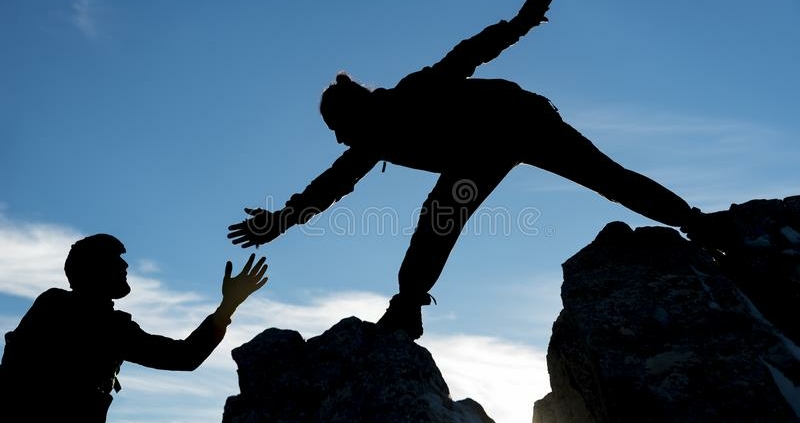
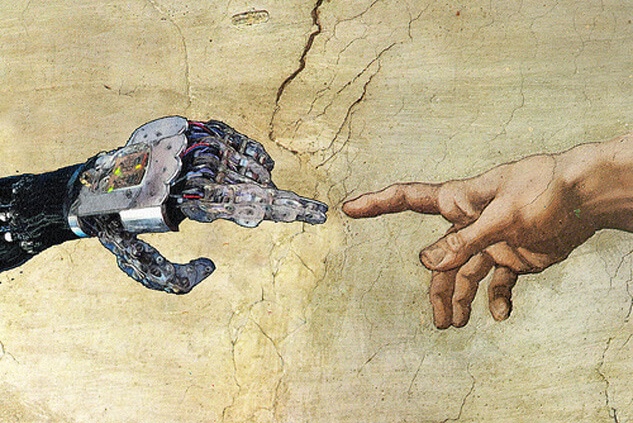
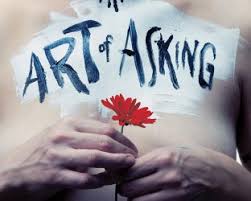
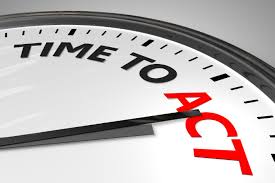
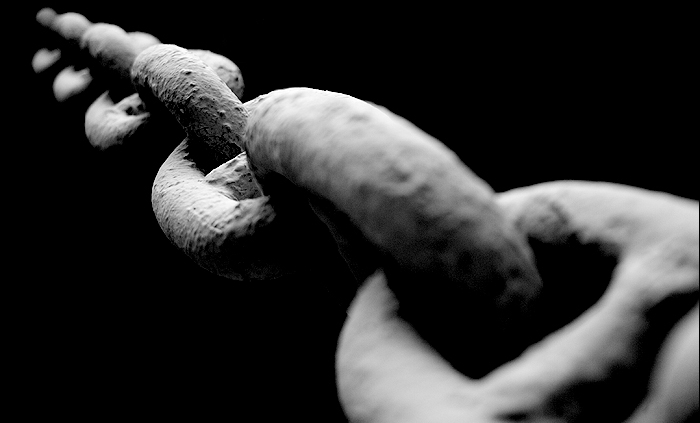
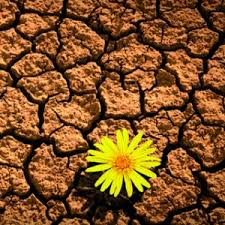


 Evan J. Krame was ordained as a rabbi by the
Evan J. Krame was ordained as a rabbi by the